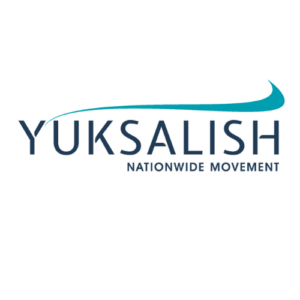
The Fergana Valley, located on the border of Uzbekistan, Tajikistan, and Kyrgyzstan, is considered a multi-ethnic region. Interethnic relations and competition for natural resources are traditionally seen as factors that cause conflicts.
To increase public awareness of the necessity of peaceful coexistence, as well as to involve the local communities in joint efforts to prevent radicalism, extremism, and the spread of ethnic and religious tolerance, work is being carried out with local communities within the framework of the project.
Local communities, with the participation of youth, women’s councils, representatives of local authorities, and religious leaders, initiate the development of “Local Tolerance Programs”. Trained specialists will conduct this work. To start the development process, one-day seminars on the development and planning of “Local Tolerance Programs” will be held. Local agendas will contain an assessment of the situation in the pilot community, mapping of problems and resources for building intercultural dialogue, and measures to increase tolerance and reduce conflicts, with a special emphasis on youth and cross-border interaction. At the end of the development process, the developed Local Agendas will be presented at events to legitimize them before local communities, with the participation of all relevant community groups and local authorities.


📢 Great news! On July 18-19, the FORUM "Bridges of Friendship in the Fergana Valley" will be held in Fergana. 🌍🤝
The project will present the results of its work to key stakeholders, including government agencies, civil society representatives and the media. Youth achievements will be showcased and future steps planned for their sustainability. 📈💪
On the agenda of the forum: presentation of best practices in the field of peacebuilding, strengthening partnerships, intersectoral cooperation between young leaders and government agencies, as well ...Читать далее
On May 18, 2023, the opening of the training for trainers “Diversity Management, Conflict Prevention in Local Communities in Central Asia” took place in the conference hall of the ParkHotel in Bishkek (Kyrgyzstan). The training is conducted by experienced trainers: Zulfiya Kochorbayeva, Director of the Agency for Social Technologies and Baktygul Islanbekova, National Project Coordinator of the Agency for Social Technologies.
This training contributes to the implementation of the 2030 Agenda for Sustainable Development in terms of combating and preventing conflict, ...Читать далее

CALL OF COMMUNITY MEMBERS
An open competition was held among the border communities in Kyrgyzstan, Uzbekistan, and Tajikistan to select 6 pilot communities (2 in each country).
The competition was announced on local, regional, and social media. The pilot communities were selected based on criteria such as multi-ethnicity, willingness to participate in the project, their own contributions, and ensuring the participation of representatives of both local government and civil society.
The inter-country selection committee consisted of 3 people from each country: project representatives, experts, and representatives of government bodies working with local self-government bodies.

The project “Cross-border and Cross-Sector Dialogue for Tolerance and Peace in Central Asia” is organizing a training for National Experts from Kyrgyzstan, Tajikistan, and Uzbekistan to work with local communities selected through a competition among bordering communities of the Ferghana Valley to receive financial and expert support for the development and implementation of “Agendas (action plans) for peacebuilding and tolerance.”
The selected local communities will develop their own “Local Agendas for peacebuilding and tolerance,” involving youth activists, women’s councils, heads of villages, local council deputies, mahalla committees, local religious leaders, local NGO activists, and other members of local communities. The goal of the training is to teach National Experts who facilitate the process of developing “Local Agendas for peacebuilding and tolerance” to analyze the situation, identify problems and resources for the development and adoption of measures that enhance community resilience.
Participants: National Experts on working with local communities from Kyrgyzstan, Tajikistan, and Uzbekistan, as well as project coordinators in each of the three countries.







